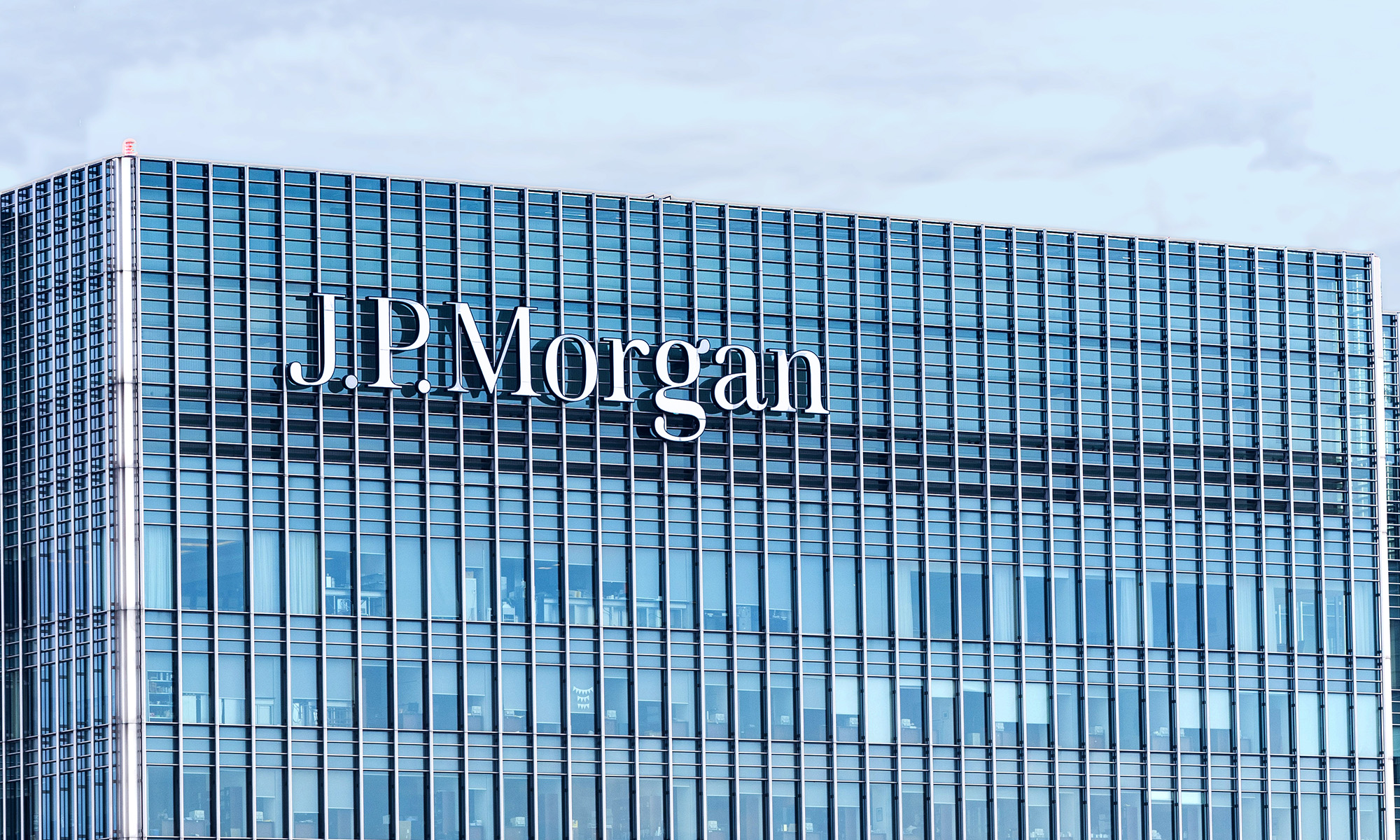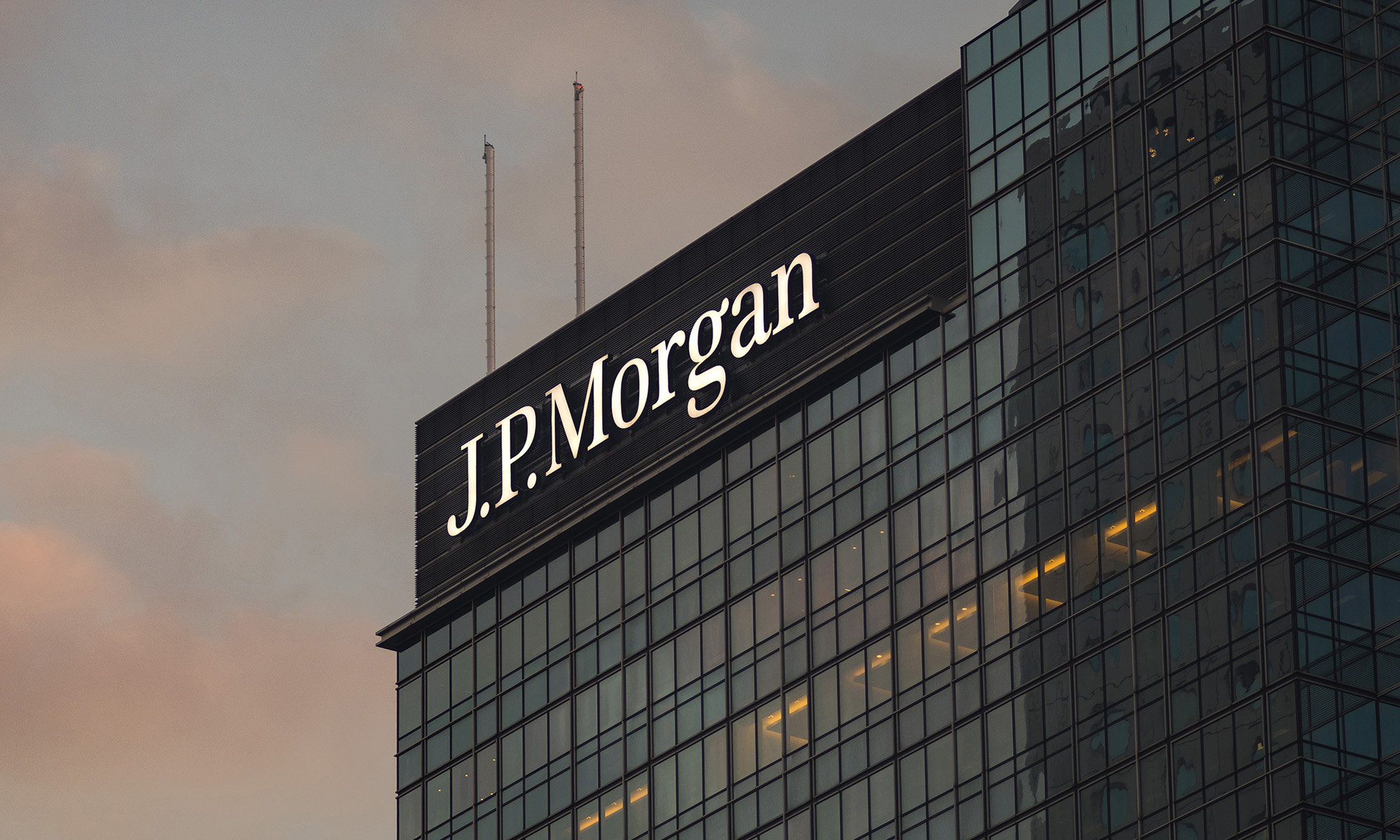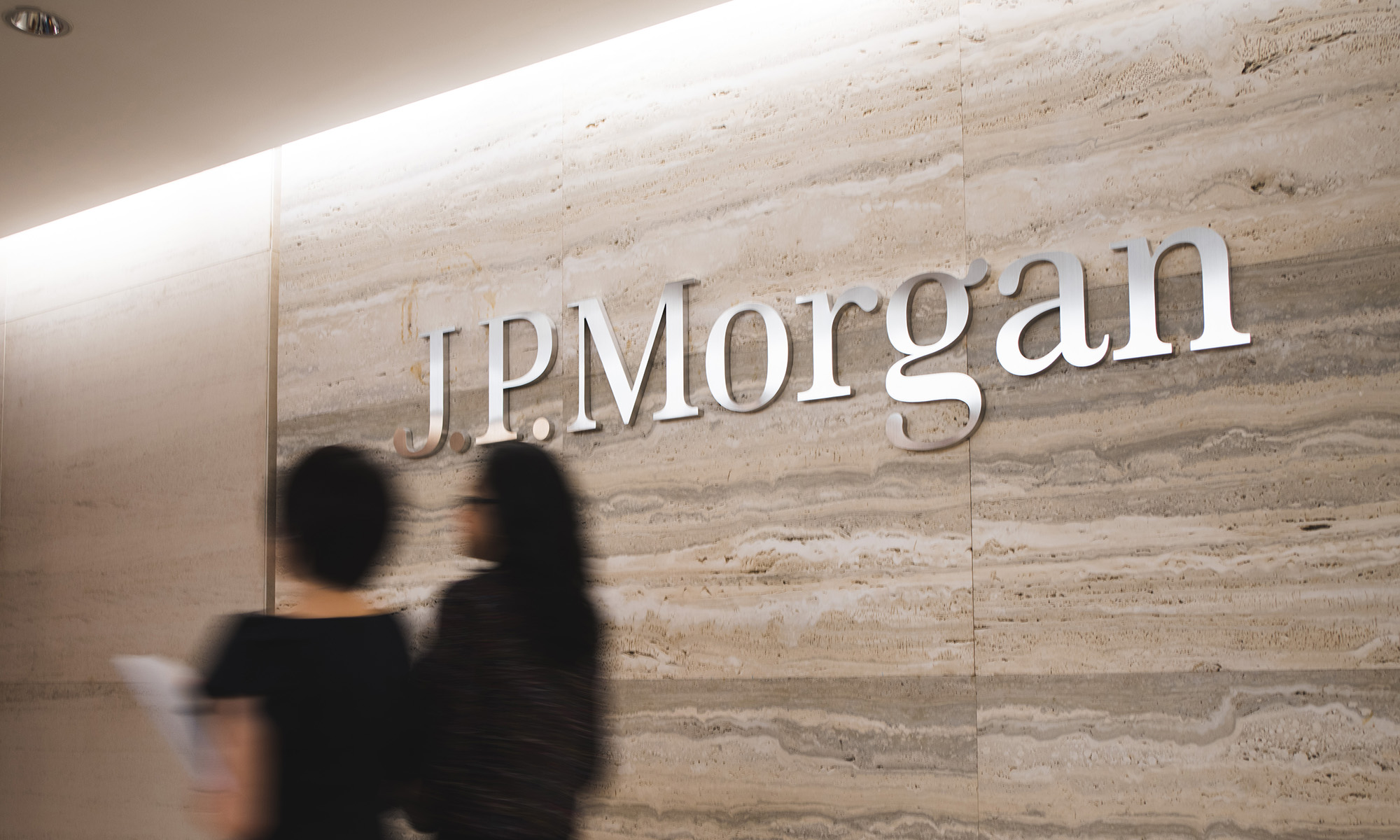First-quarter earnings season is now officially under way, and investors will get their first glimpse at how the COVID-19 pandemic is affecting businesses. The big banks are among the first companies to report their results, and JPMorgan Chase (JPM +2.26%), the largest bank in the United States, has just revealed its latest results.
With that in mind, here's a rundown of the headline numbers, some important details investors should know, and one silver lining of the recent market volatility.

Image source: JPMorgan Chase.
How did JPMorgan Chase do in the first quarter?
At first glance, the bank's earnings results might look atrocious. Earnings per share of $0.78 for the quarter dramatically missed expectations, and the bank's net income dropped by nearly 70% from the same quarter in 2019.
Some of this was related to the business, as we'll get into shortly, but it was mainly due to a $6.8 billion addition to loan loss provisions. In other words, management (wisely) decided to set aside tons of capital in anticipation of loan defaults skyrocketing. CEO Jamie Dimon said the reserve build was necessary "given the likelihood of a fairly severe recession." Excluding this charge, JPMorgan Chase's earnings would have been $1.66 higher per share.
In this case, revenue is a better indicator of how the bank is performing. While first-quarter revenue of $29.07 billion was down, it was only 3% lower than the first quarter of 2019. And the rest of the business looks rather strong. Just to name a few highlights:
- Loans grew by 6% year over year throughout JPMorgan Chase's business at the end of the first quarter relative to last year.
- In the consumer banking business, deposits grew 10% from a year ago, client investment assets grew 3%, and credit card sales volume was 4% higher. Credit card sales volume dropped significantly in March.
- The bank's book value of $75.88 per share is 6% higher than a year ago.
JPMorgan Chase is in good shape
One thing that's extremely important for bank stock investors to keep in mind is that this is not the financial crisis. JPMorgan Chase (and the rest of the big banks, for that matter) are well-capitalized and should make it through the recession just fine, even if it lasts longer than expected.
And, business is doing better than you might expect. Deposits grew in every line of the bank's business during the first quarter, and the bank was very active in consumer and business lending even as most of the economy shut down.
In March alone, we opened half a million new accounts for our card customers and extended over $6 billion of new and increased credit lines, and we were active in Home Lending and Auto. We lent over $500 million to small businesses in the month and we're now actively supporting the SBA's Paycheck Protection Program. -- CEO Jamie Dimon
It's also worth pointing out that the bank suspended share repurchases in mid-March to help ensure adequate capital, and that it could consider suspending its dividend if the situation worsens.
One part of the bank's operations did well
One silver lining of market volatility is that it often leads to higher trading revenue, and this was certainly the case for JPMorgan's massive trading operation. In fact, the bank generated record trading revenue of $7.2 billion for the quarter, handily surpassing expectations on both the fixed-income and equities sides of the business.
To illustrate why this is, consider that the bank's equity trading volume in March peaked at more than double the average volume in January. For fixed-income and commodities trading, the spikes were even higher.
The second quarter should show more effects of the coronavirus
One key point to keep in mind is that the first-quarter results don't fully reflect the coronavirus outbreak's effects. For one thing, January and February were pretty normal months -- at least when compared to March. And while JPMorgan Chase added $6.8 billion to its loan loss provisions, we still haven't seen the effect of the pandemic on loan delinquencies and defaults. The hope is that the stimulus efforts will keep losses to a minimum, but it remains to be seen.
The bottom line is that while we now have our first look at bank earnings in a COVID-19 environment, the biggest impacts to JPMorgan Chase's business are yet to come.
However, when it comes to the first quarter, Dimon said, "JPMorgan Chase performed well in what was a very tough and unique operating environment." I'm inclined to agree.






